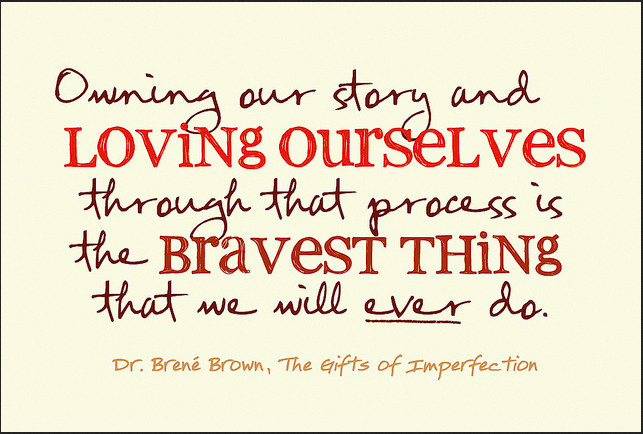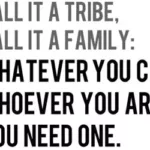A while ago I wrote about the importance of self love and how self love is the first step to loving others since you can only love others as much as you love yourself. Now we know we should love ourselves, and we hopefully feel that it is ok to love oneself. The question then becomes why don’t we love ourselves.
The answer nine times out of ten is shame!
What is shame
Shame is a negative, painful, social emotion that “…results from comparison of the self’s action with the self’s standards…”.[1] Both the comparison and standards are enabled by socialization. … The roots of the word shame are thought to derive from an older word meaning “to cover”; as such, covering oneself, literally or figuratively, is a natural expression of shame. Nineteenth century scientist Charles Darwin, in his book The Expression of the Emotions in Man and Animals, described shame affect as consisting of blushing, confusion of mind, downward cast eyes, slack posture, and lowered head, and he noted observations of shame affect in human populations worldwide. He also noted the sense of warmth or heat (associated with the vasodilation of the face and skin) occurring in intense shame.
So shame is the act of covering up, hiding your true self based on the (often false) assumption that there is something wrong with you. The definition bases this covering up on the comparison of ones actions held up against ones standards, these standards come from our surrounding culture. If we would let go of the societal norm, there simply would be no shame.
IN Genesis we are told that the first humans had no shame. So from a biblical perspective, shamelessness is our origin and intended way of being.
And the man and his wife were both naked, and were not ashamed. (Genesis 2.25 NRSV)
The first thing that happens when introduced to the duality of good and evil is that the first humans cover up display shame. It is not that nudity suddenly became bad or forbidden but with the possibility of good AND evil comes the comparison and the judgement.
And so even today shame is linked very closely to our bodies, we have all sorts of hangups and problems when it comes to our own bodies and our body image. We live in a world where it is not only normal but also mandated that we cover up and not show our bodies. Shame is built into our entire way of being.
There are so many levels and types of shame but this is surely where it starts. Remember when you where a child when you would run around in nothing but your birthday suit and not have a care in the world. Not caring who saw you or what they where thinking about you? When did this change? What was it that made you suddenly feel the need to cover up and hide? Many of us have deep shaming stories of grown ups shaming us for our nakedness and freedom. And if not the nakedness then it all came with the discovering of our sexuality, whether as a toddler or a teenager, as soon as the body starts displaying signs of sexual awakening or maturity we all cover up in shame. Society at large condemns our sexuality at an early age. We are told directly or indirectly that it is not ok to be sexual and or to in any way display or talk about sexual desire.
My girls have been taught (not by their parents) that it is disgusting to be sexy! To the extent that they have physical reactions to songs with the word sexy in the lyrics.
We are told that people who get naked or show skin are shameless and bad people. It is all interconnected, our view of nudity, our own body image, our sexuality and the shame we carry around it. If someone does not display the proper amount of shame we are quick to shame them with words like slut, man-whore, player, gigolo, the list goes on and on.
It is funny how we all think that people should carry a certain level of shame and at the same time we often do not want to admit our own shame. We cover up our shame. We are ashamed to be ashamed because instinctively we also know that shame is not a good thing.
People often want to believe that shame is reserved for the folks who have survived terrible traumas, but this is not true. Shame is something we all experience. And while it feels as if shame hides in our darkest corners, it actually tends to lurk in all of the familiar places, including appearance and body image, family, parenting, money and work, health, addiction, sex, aging, and religion. To feel shame is to be human. (Brene Brown, Gifts of Imperfection)
So we carry shame in all these areas of our lives where we cover up who we are with clothes, masks and roles we play in order to fit in and please others. This is the primary job of the EGO and this is also why the EGO employs the inner critic, or the accuser to make sure we stay in line stay within the box and keep carrying our shame. Now Let’s just get this completely straight the biblical name for the accuser is shaitan or as we know him Satan. Just as the divine voice is found within the destructive voice of the accuser also comes from within. We need to understand that this voice telling us we are no good is not the spirit of love, it is not our conscience, it is a gremlin, it is the accuser, the shaitan most often our EGO take this role to protect us from public embarrassment and to keep us streamlined and fitting in with the collective as this is the job of the EGO.
The difference between shame and guilt
So should we just do whatever we want and not care one iota what others think or feel, not caring when we hurt someone else or take advantage? Well no, that is not what I am saying. We need to remember Paul’s sober words “All things are lawful,” but not all things are beneficial. “All things are lawful,” but not all things build up. ” (1 Cor 10:23 NRSV)
So yes you can do anything you want, but be responsible and know that everything will not be good for you. So when I do something and I realise it wasn’t good for me, should I not feel shame? NO!
This is where we need to remember the distinction between guilt and shame. Guilt is “I did something bad”, shame is “I am bad”. Guilt is the recognition that I have taken an action that was not beneficial and guilt gives the energy and impetus to do right, to come clean and confess what went wrong and then do right. Shame on the other hand is the voice that tells you that you are a bad person bevcause you did this bad thing, shame will steal your energy and tell you to cover it up, to hide it and not let anyone know how bad you are.
So guilt is a positive emotion and it creates healing and positive results like healing, reconciliation and restitution. Guilt is owning your crap and taking responsibility for your thoughts and actions. Guilt is saying “I did it!”.
Shame is a destructive emotion that will drain you, it will create separation between you and your true self, you and god and you and others.
The DNA of shame
Shame needs three things to grow out of control in our lives: secrecy, silence, and judgment. When something shaming happens and we keep it locked up, it festers and grows. It consumes us. We need to share our experience. Shame happens between people, and it heals between people. If we can find someone who has earned the right to hear our story, we need to tell it. Shame loses power when it is spoken. In this way, we need to cultivate our story to let go of shame, and we need to develop shame resilience in order to cultivate our story. (Brene Brown, Gifts of Imperfection)
So we are all agreed shame is not healthy and it is something that keeps us from loving ourselves and therefore loving others. Conversely shame also creates masks and roles which prevents us from feeling loved. It creates separation and division. In its ugliest forms it creates self-hatred and harsh judgement and hatred towards others.
Confession then, is the road to healing, openness, vulnerability and acceptance is the antidote to shame. To become more loving and to become more true, to become closer to our true selves and thereby closer to the divine we need to repent. To turn away from this worlds thinking and dive into divine thinking. To do this we need some radical strategies.
Radical is a word derived from the latin term radix which means root, so radical actions means to go to the roots or in this case to your root, core or centre. If the divine is present in our core at the deepest and truest level of our selves then to the deep roots we must go.
Radical honesty
To achieve this we need some truth. We must start with being totally and brutally honest with ourselves. Say it like it is, not in a harsh unkind way but softly with love. Acknowledge all the ways that you are, all the little things and the big things. And then in your communication to others apply the same principle. Speak truth, name the feeling you feel, speak the emotion, put words to the thought.
Just remember that will radical honesty means to always be completely and blunt,y honest, it does not mean share everything all the time. Not everyone has earned the right to hear your story, carefully choose the people you are willing to get vulnerable and emotionally naked with as you would choose carefully who you get physically naked with. Do not hold back out of fear or shame but as a way of caring deeply for yourself. Only share yourself fully with those who accept you fully.
Radical acceptance
The next step is grace, acceptance. Once you are honestly looking at yourself and acknowledging all that you are. Then you can start accepting where you are. This is not condoning or saying that all is good. It is simply accepting what is. No judgement.
A very important part of radical acceptance is to acknowledge and accept your feelings as an important and true part of yourself. Our feelings carry with them messages from deep within ourselves or important warnings about what our EGO’s are up to. It is important to accept these messages and to allow our feelings to pass through us cleaning out the channels and making room for greater feelings and experiences.
Once you start accepting yourself, you can let it extend to your surroundings, your circumstances, the people around you.
The important thing to realise here is that you can only transcend what you first accept. Whatever behaviour or egoic state you deny is not changeable (what you resist persists) only what you accept to be true about yourself is possible to change. But it is not enough just to admit that it is there (truth/honesty) we must also accept this as a fact without judgement. When we judge something in ourselves we often mistake the action or personality trait with our person and slip into shame. Accepting it is owning it whatever it is. Yes I am hairy, I am loosing my hair, I am afraid, I like brunettes, I can\t hit a note to save my life, etc. etc. The act of accepting something of oneself often allows us to realise that our aversion to this thing is based on others perception or societal norms and not our own idea of what is right for us or not.
Not only does accepting what is allow us to let go of tremendous amounts of shame it will also give us peace of mind as we no longer struggle with fighting against what is.
Radical action/repentance
So with radical honesty and radical acceptance we put ourselves into position of radical action. Once we have truly admitted and accepted ourselves we gain an objective view of ourselves and our surroundings this is the first step of what we in the church call repentance. The second step is action. So we look at ourselves and our lives and realise this is not who I truly am, this is not my true self and then we have the possibility to shed our coverings (whether it is behaviour or personality trait, habits or belongings) and become shameless/uncovered or just becoming our true selves.
In practical terms, metanoia means to “change the way we use our minds”—to think beyond the normal limits of the way we have been taught to reason. It implies that we haven’t been using our minds correctly. (Jim Palmer, Inner Anarchy)
Richard Rohr puts this another way: “We don’t think ourselves into a new way of living, we live ourselves into a new way of thinking”
Taking radical action is to act according to what is and not what is expected, it is to act based on the guidance of the divine voice inside of you instead of the dogmatic teaching of your church, pastor, yoga studio, guru, counsellor or friends. It means acting out from your deepest and truest self as opposed to acting out of your EGO or out of the expectations of others and our desire to fit in.
Radical love
When we are able to look at ourselves and our reality with total honesty, when we are able to accept that reality without judgement and when we are able to take radical action from the deep place of our true self where we are really one, with the divine and the other, then we are able to love ourselves fully without exception and hesitation, without holding back this will also enable us to love everyone around us with this same radical, divine love.
Radical love, I contend, is a love so extreme that it dissolves our existing boundaries, whether they are boundaries that separate us from other people, that separate us from preconceived notions of sexuality and gender identity, or that separate us from God…. (Patrik S. Cheng, Radical Love)
This is the love at the source of all things the agape that is god.
Christian theology is ultimately about radical love. It affirms the impossibly queer truth that God is love, that God’s very self is an internal community of love, that God’s love spilled forth in the act of creation, that God became human out of God’s love for humanity, and that God continues to guide us back toward the love from whence we came. Christian theology promises us that nothing—not hardship, not distress, not persecution, not famine, not nakedness, not peril, not the sword, not death, not life, not angels, not rulers, not things present, not things to come, not powers, not height, not depth, nor anything else in creation—can ever separate us from the love of God. There is no love that is more radical than that… (Patrik S. Cheng, Radical Love)
When we live from this deep and true place in ourselves, honestly accepting, owning and acting on what really is. Then we live without masks, without hiding, without pretending. Living from our deepest dreams and desires unfiltered by dogma, religion, peer pressure, self repression, self censorship and societal norms. This is what it means to be true and to be truly shameless.








